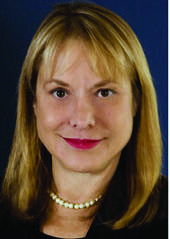The first time around, I thanked God, my daughter and Twitter for managing to snag me one of the first appointments for a COVID-19 vaccine. It was February of last year, and I felt like I’d won the lottery. I drove for an hour to East LA, stood in line for an hour with my son (there to drive me home in case I had a bad reaction) and thanked everyone in sight.
When I got the confirmation for my second shot, I couldn’t believe that the system set up by the city of Los Angeles actually worked. I went back to East LA, stood happily in line again and thanked everyone in sight — again.
For my booster last August, I made an appointment on the same day, attested to my rheumatoid arthritis, and thanked the very nice pharmacist at my local Rite Aid. The whole thing took 20 minutes. I felt very smart to be one of the first to get my booster.
This time, I have no idea if I’m very smart or not. I have no idea of much of anything when it comes to COVID-19. I don’t know if I’ve had it or not, for example: I had two positive at-home tests, one negative PCR and no symptoms after being exposed. I don’t know why I wore a mask everywhere for two years and now don’t wear a mask at all, why we campaigned against anti-maskers and now we’re all anti-maskers. Were they right? Obviously, that can’t be. Too many of them got sick and died, didn’t they? So, what’s changed?
I’m lucky, I think, because I don’t have any reactions to the Moderna vaccine other than being tired, which is not unusual. But, among other things, I don’t know if that’s a good thing — a sign of a robust immune system — or a bad thing — a sign that the shot is not “working.” You can find plenty of people, many of them experts, according to themselves, on both sides of these and almost every other question relating to COVID-19.
One thing COVID-19 has made clear is that many of the self-proclaimed experts aren’t, or they aren’t to be believed, our former president and Plaquenil (my rheumatoid arthritis drug) among them. But figuring out who is to be believed is another matter. Every time someone says they are being guided solely by science, I wonder where politics is lurking in their advice. They protest too much. Taking politics out of the most important public health issue of our time is simply not possible. In the middle of an election, no less.
The very nice Rite Aid pharmacist, who also gave me my third shot, reassures me that I’m doing the right thing. “Is it busy here?” I ask, the window just having opened for those over 50 to get our second booster. “Not like back in the beginning,” she tells me, when she was giving shots every five minutes.
The fourth time around, there is no line. There is no one in front of me and no one behind me. The Rite Aid is down the street, not an hour across town. It’s all very frustrating in an entirely different way. Frustrating because she probably is right: I’ve just heard of a friend of a friend who died of COVID-19, three shots and all; across the Pacific, an epidemic is raging; and here at home, it seems like it’s over and done.
If the pharmacist is right, and I think she is, where is everyone? Trying to figure it out, I fear. Trying to figure out who to believe.
As I leave the pharmacy, whose shelves are strangely empty, I can’t help but feel that sense of insecurity that pervades so much of life lately.
And there is still one more question: where is Joe Biden? Why doesn’t his voice ring through?




